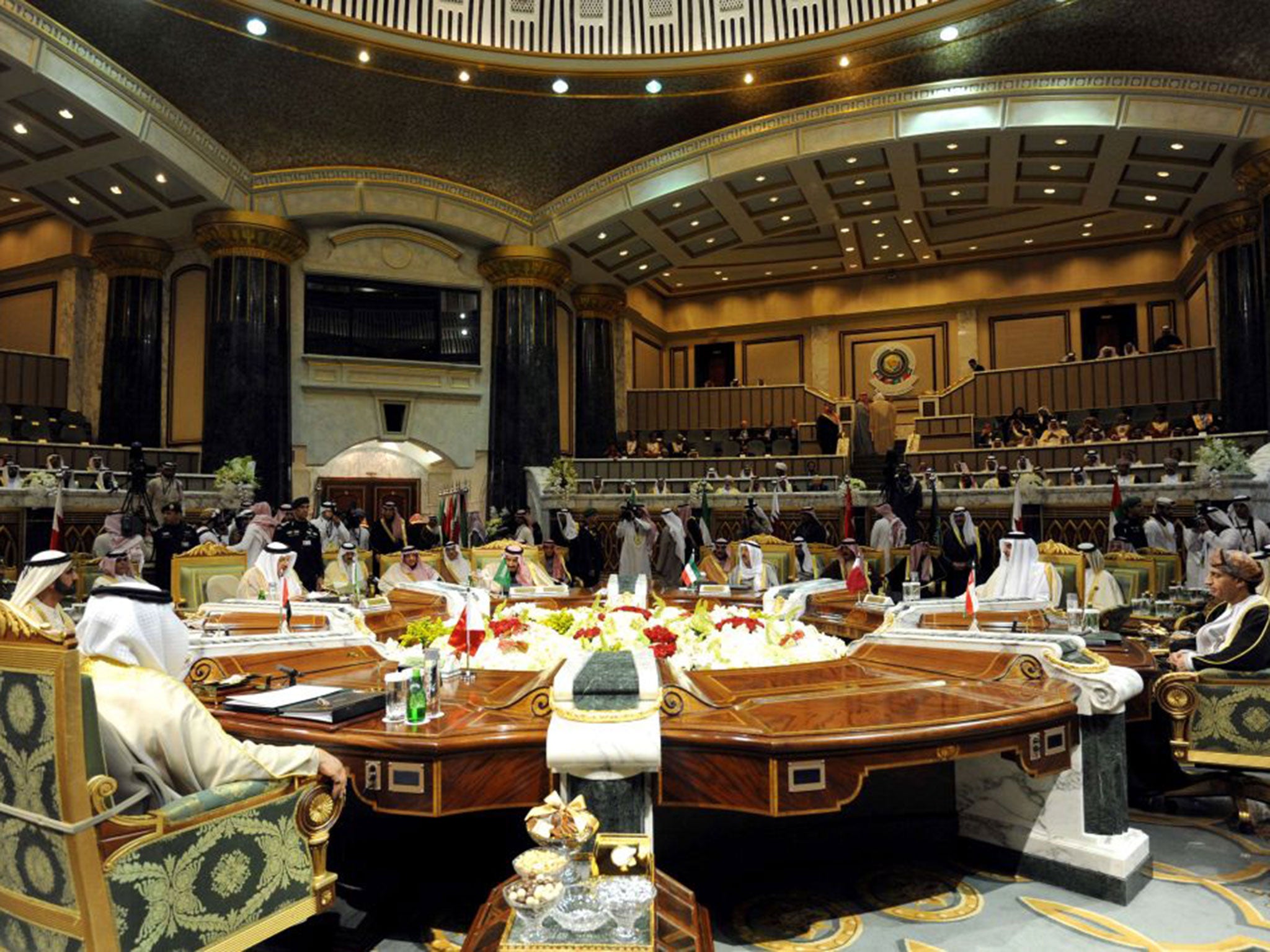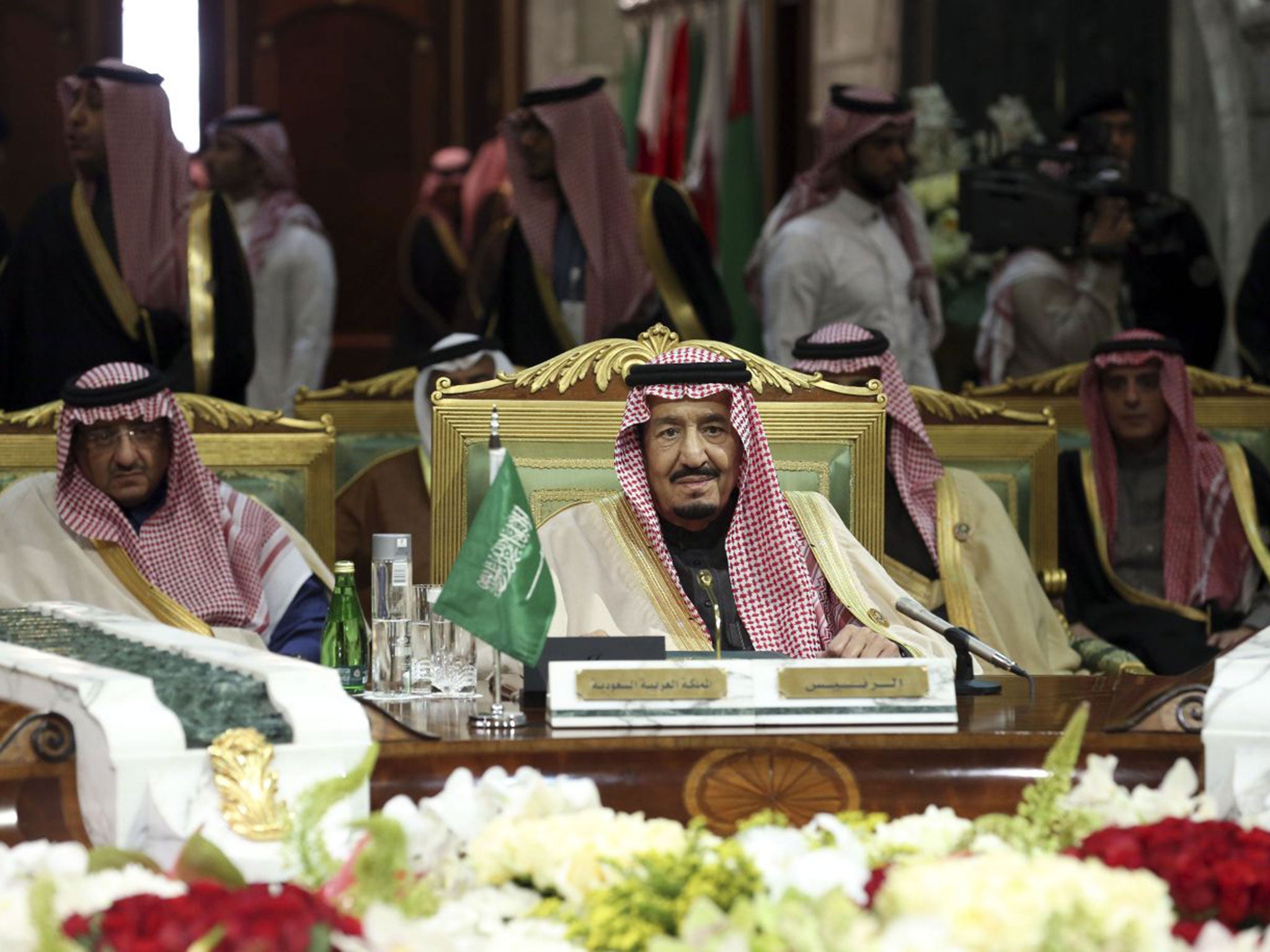Meeting of Syrian rebel groups in Saudi Arabia ends in chaos as Islamist militia Ahrar al-Sham walk out
The group pulled out of the talks saying that armed groups were being marginalised by the political bodies

Your support helps us to tell the story
From reproductive rights to climate change to Big Tech, The Independent is on the ground when the story is developing. Whether it's investigating the financials of Elon Musk's pro-Trump PAC or producing our latest documentary, 'The A Word', which shines a light on the American women fighting for reproductive rights, we know how important it is to parse out the facts from the messaging.
At such a critical moment in US history, we need reporters on the ground. Your donation allows us to keep sending journalists to speak to both sides of the story.
The Independent is trusted by Americans across the entire political spectrum. And unlike many other quality news outlets, we choose not to lock Americans out of our reporting and analysis with paywalls. We believe quality journalism should be available to everyone, paid for by those who can afford it.
Your support makes all the difference.A meeting hailed as an attempt to unite the disparate opposition to Bashar al-Assad in Syria broke up in disarray when a one of the main militia groups apparently walked out.
The two-day conference in the Saudi capital Riyadh was the first serious attempt to bring together largely moderate groups fighting the Assad regime inside Syria, and exiled political organisations, which have opposed Damascus from outside. Isis and Jabhat al-Nusra were not invited to take part.
The talks were designed to build a united front for future peace negotiations and a final communiqué, which called on President Assad to step down at the start of a “transitional period,” was issued as the conference concluded. However, a planned press conference was cancelled and the statement came only after Ahrar al-Sham – a 20,000-strong Islamist militia – pulled out of the talks saying that armed groups were being marginalised by the political bodies.
The final agreement backed a “democratic mechanism through a pluralistic regime that represents all sectors of the Syrian people”. This would include women and would not discriminate on religious, sectarian or ethnic grounds, reported Reuters. The participants also committed to preserving Syria’s state institutions and restructuring the army and security services.
Much of Syria’s infrastructure has been destroyed in the four-and-a-half-years of fighting and as many as 340,000 people have been killed. Large areas of the country are under the control of Isis and other militants, who are as much an enemy of the groups meeting in Riyadh as they are of the Assad regime. The Kurds, who control much of northern Syria, were also excluded from the meeting after a series of bitter disagreements with other anti-Assad groups.
Regardless of the groups that are in and those that are out – unconfirmed reports last night indicated that Ahrar al-Sham had later reversed its decision and had backed the details in the communiqué – the manoeuvring highlighted just how fragile the opposition to Assad is. The talks themselves papered over “huge differences” according to some experts.
“This conference is an attempt by the Saudis to present a good face and show that everyone agrees,” said Professor Fawaz Gerges, professor of international relations at the London School of Economics. “It seems pretty clear that Ahrar al-Sham has torpedoed the discussion. While they want to topple Assad like the others represented in Riyadh, their position is that there cannot be a settlement without the existence of an Islamic state – and that it clearly not what many of the political groups want.”

Aside from its strength, Ahrar al-Sham is important because is it represents a religious dimension to the Syrian opposition. The group is Islamist, but sees the demise of the Assad regime as its primary goal. It claims to have abandoned some operations for fear of civilian casualties. The group initially said that it had walked away because the meeting “had given top key roles to the National Coordination Committee and other figures who are considered supporters of the [President Assad] regime”.
It added: “As we withdraw from the conference, we are calling on other mujahedeen and revolutionary groups to make a historic stance on the side of their religion, nation and people.” .
The day had begun with optimism, with US Secretary of State John Kerry saying that the first day of discussions had been “very constructive”.
Iran, which along with Russia is fighting to prop up Assad’s regime, said that some groups linked to Isis were part of the discussions in Riyadh. “Some of the terrorist groups linked to Islamic State are involved... These terrorist groups will not be allowed to decide Syria’s future,” Iran’s deputy foreign minister Hossein Amirabdollahian said, according to the semi-official Fars news agency.
Join our commenting forum
Join thought-provoking conversations, follow other Independent readers and see their replies
Comments